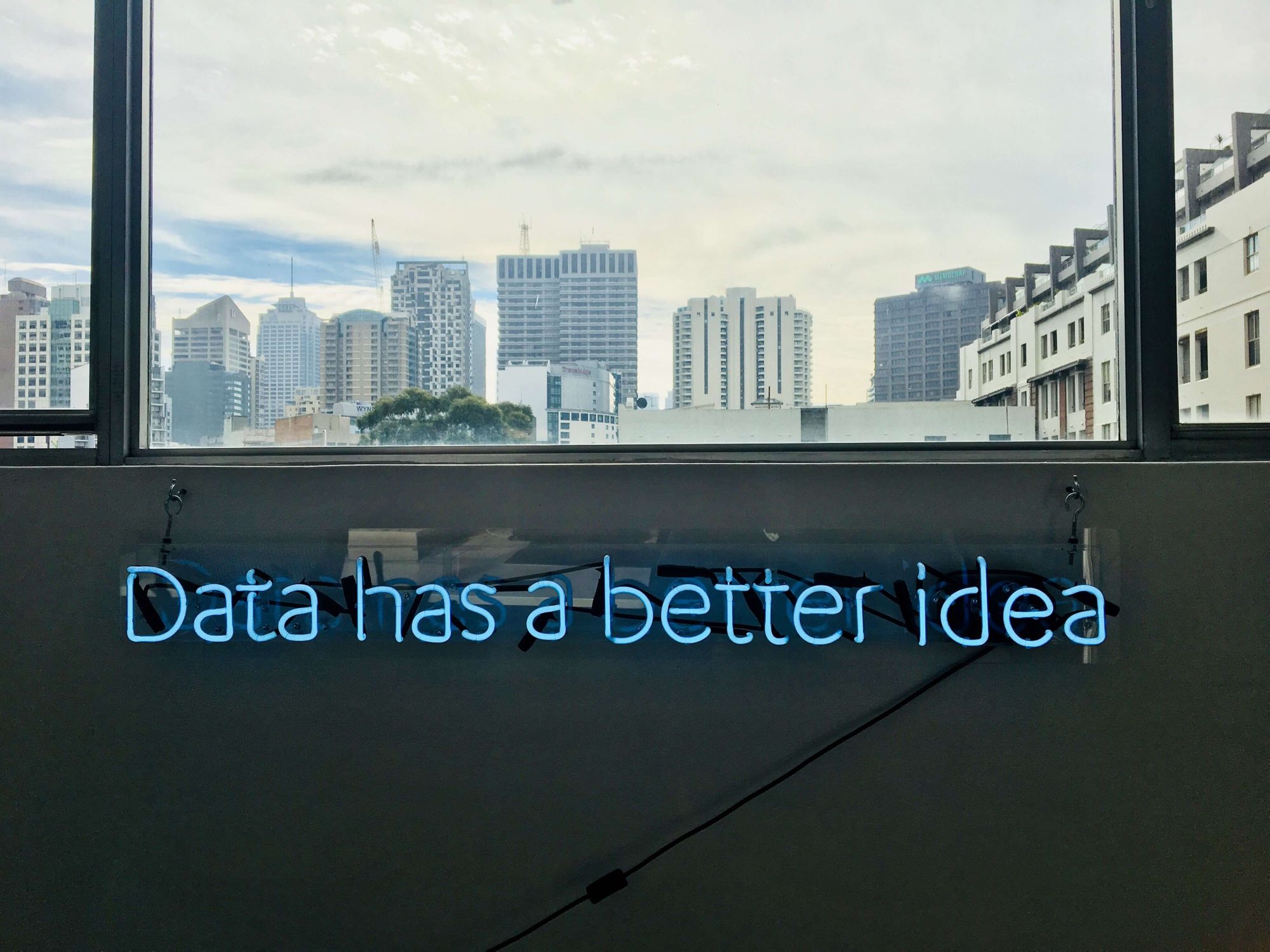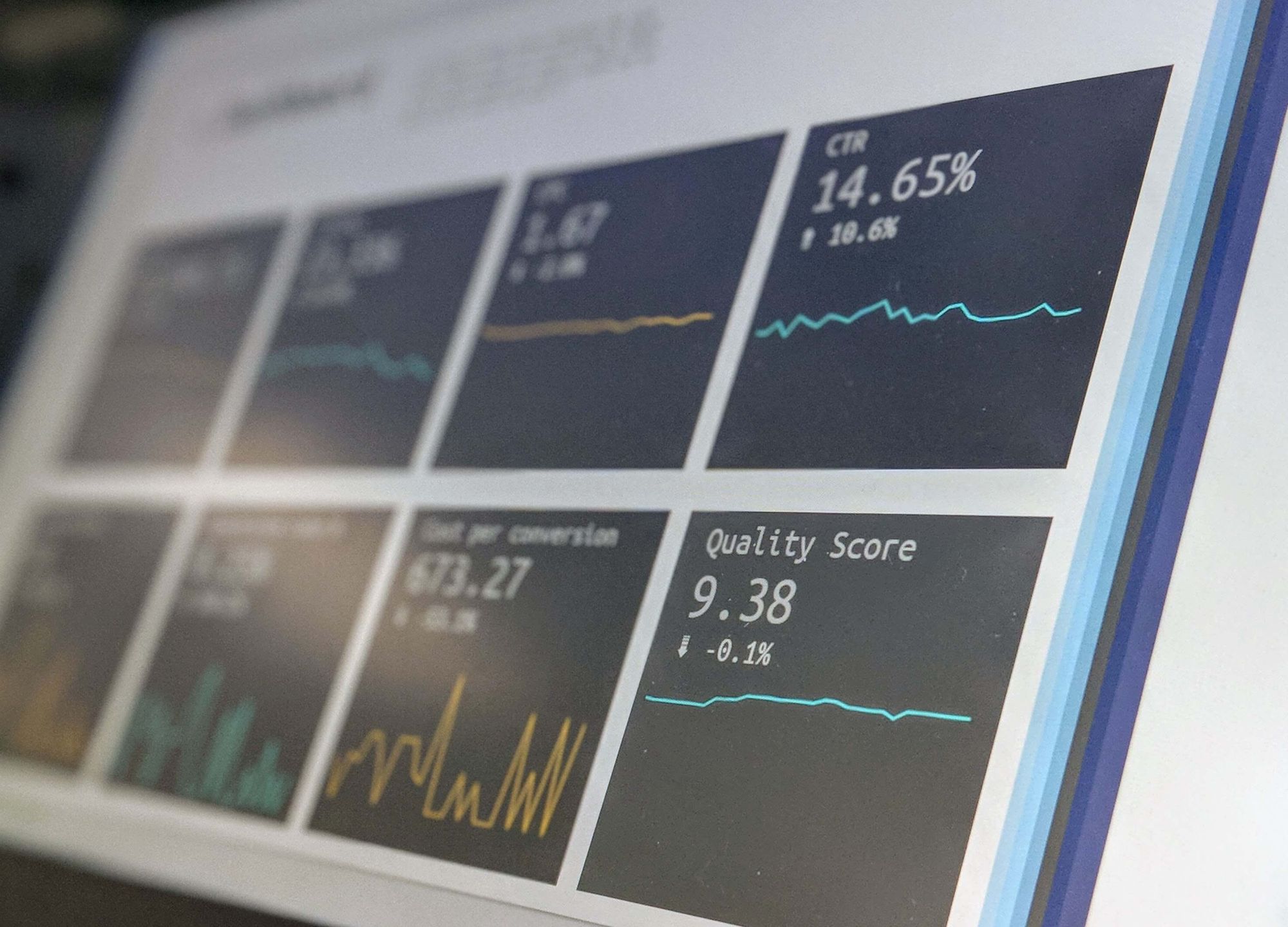Artificial intelligence (AI) is a fast-growing technology with a wide range of applications. That’s all well and good, but many of us are still wary of AI and its potential.
Are you worried that AI will replace all our jobs? Or are you worried about a robot apocalypse that brings about the downfall of human civilization? Or maybe you just want to know if AI can make data analysis less tedious?
While we can’t tell you if your job will be replaced or if we will all end up in a robot apocalypse - we can tell you that yes, AI can make data analysis less tedious! So, if you’re interested in that and some other ways AI can help you out - keep reading.
What is AI in marketing?
AI uses machine learning alongside algorithms to make decisions that mimic a human’s reasoning skills. It can complete complex tasks by splitting them into smaller, simpler tasks but cannot fully replicate some human decisions - yet. 👀
In marketing, AI can be used for a variety of tasks that are fairly time-consuming for a human, such as data analysis or research. The big brains at Forbes have said it’s going to change the face of B2B marketing forever and transform digital marketing. So let’s find out why!

Use cases of AI in marketing
There are many different applications of AI in marketing. Let's take a look at them, shall we?
Gaining quality leads (and keeping them)
Lead generation is essential in B2B marketing - without it, there are no new customers. Due to the length of the B2B buying cycle (roughly 4-7 months), gaining a continuous stream of quality leads is important.
The capabilities of AI can easily capture data from a wide range of sources, increasing the number of leads and information about each. Using AI can also improve lead quality by analyzing the new data quickly and effectively.
This could be put to use in building your marketing database - providing you with detailed customer insights and leaving your team more time to spend closing the deal.
AI can also help you nurture customer relationships. AI response emails and chatbots allow for engaging two-way conversations, without the need for a member of your team replying to customers. They do this by analyzing customer responses to work out their needs and respond, while keeping the conversation going.

Personalized marketing
With all that data collection, why wouldn’t you tailor your marketing efforts to your customers’ needs? And with 80% of marketers agreeing that personalized content does better than un-personalized, what are you waiting for?
Using AI means you can essentially target every lead on your database individually. The right algorithms with enough data will allow an AI-based application to pick out the most relevant content and offers and send them at the right time for each customer. And these segmented customer groups are automatically updated in real-time.
This level of personalization well works for message-based marketing, like email marketing and SMS, but also on your website.
The algorithm learns your customers’ preferences and can tailor what they see to their unique data set. This is like when Amazon sends you emails about products you might like based on your previous purchases. But don’t forget you still need to make the content for the AI to send out!
By personalizing your marketing approach, customers will feel more engaged in your content and more likely to respond positively. This personalization makes your brand more agile - which can lead to a 5-10% boost in sales!

SEO and PPC
Both SEO and PPC can be improved with the help of AI. With advances in AI technology, time-consuming aspects of SEO such as researching and tagging keywords, and analyzing data can be automated.
This saves you and your content team from tedious tasks, allowing them to devote more time to more worthwhile assignments. When it comes to PPC campaigns, AI can go a step further by bidding for ad space automatically, even taking into consideration the relevancy to the searcher.
This saves your team time as you don't need to monitor your bids as closely as money, as your audience should be more relevant. Win-win!
Predictive analytics
Something which AI is much better at than humans is predictions. Predicting customer behavior is a crucial way to generate leads and make more sales. If you know exactly when to send out an email campaign to a customer when they’re right on the verge of buying, you increase the likelihood of them making a purchase from your organization.
But how can you read your customers’ minds like this? You can’t, but AI can give it a pretty good go.
Rather than reading minds, AI uses all the data collected from your customers and uses predictive analytics to figure out when people are likely to buy. Predictive analytics uses things like machine learning and datasets to predict future behavior.
This helps marketers understand what kinds of products and services their customers are looking for and when, positioning you to implement campaigns more effectively and accurately.
The great thing about predictive analytics is that the AI will keep learning and improving. So you’ll be able to see exactly which campaigns had the best ROI, and you can continue to improve in the future while dropping any campaigns that don’t have the desired outcome.

Segmentation
Making sure you send the right messages to the right people is crucial in B2B marketing. You don’t want to waste time and resources on leads that won’t go anywhere, which is why segmenting your audiences is so important. But manual segmenting is a time-consuming, tedious process, so AI can take over this task for you.
AI algorithms can sift through all your data and automatically segment your customers based on chosen criteria. What makes the process even more impressive is that it can segment customers in ways you never considered.
While manually, you might split people by gender, age, location, etc. AI can look at more specific metrics like consumer behavior, allowing you to prioritize leads that your AI has determined are more likely to make a purchase.
Marketers have seen a 760% increase in revenue generated from segmented campaigns, so imagine the benefits to your own marketing campaigns if you have an AI doing the segmentation for you.
Churn prediction
Churn prediction refers to finding out which of your customers are likely to cancel their services or leave for one of your competitors. It’s crucial to know because it’s five times more expensive to attain a new customer than retain one.
So how can AI help? Well, machines are much better at predicting than humans, as they can process and understand data so much quicker than we can, virtually instantaneously. So rather than having to process data from website visits, purchase history, and customer service interactions yourself, an AI can do it all for you in the blink of an eye.
Churn prediction models can identify those customers at risk of leaving, indicate the issues that are causing the problem, and recommend solutions to retain the customer. It can determine the behavior patterns of potential churners, segment these at-risk customers, and take action to try and win them back before they leave. Talk about taking away some of the grunt work!
Automated email marketing
One key area of B2B marketing where AI is making waves is in email marketing. There are so many ways algorithms can help with your email marketing efforts, from email timing calibration, product recommendations, personalization, and more.
88% of people are more likely to engage with an email if it looks like it was created for them, so ensuring you’re at the top of your email marketing game has never been more critical.
There’s a fine art to deciding how many emails to send out to subscribers. Too few and you risk losing them to competitors, but too many and you risk annoying them and losing them as customers. Rather than using guesswork, AI can actually decide on the correct amount for you using data to determine the optimal number and what time of day to send them.
The algorithm uses your subscriber’s activity history and personal habits to calibrate the schedule for your email marketing. So you never need to waste time coming up with the perfect email schedule; your AI system can take over this process for you.
Aside from when to send emails, AI can also assist you with the kind of emails to send out. You can completely personalize your email marketing, and it’ll do this automatically and far more accurately than any marketers could analyze data themselves.
Apart from simple things like addressing your customers by name, AI can also send them specific product recommendations, discounts, and freebies based on their activity history, industry, and business requirements.

Chatbots
Excellent customer service is a crucial way to keep hold of customers and making sure they don’t stray to your competitors. But it’s easy to let this slip through the cracks with everything else you have going on.
Customer emails and social posts go unanswered or left too long and people are quick to grow impatient and take their business elsewhere. Fortunately, chatbots are on hand to help.
Chatbots can be set up to understand, analyze, compile, and respond to customer queries. Not only can they help your customers find answers to questions, but they are a marketing tool that can push products and services to people inputting the right keywords. All of this is an automatic process, no need for a human to be sat typing out responses in real-time.
In a study about chatbots, 68% of respondents said that they liked that chatbots could respond to them quickly, and it’s expected that 80% of businesses will have a chatbot function by the end of this year.
The great thing is that they learn and improve over time; they’re always getting better. So a chatbot could be a key component of your marketing strategy, and sits at the center of the increasingly popular system of conversational marketing.
Content curation
You may not want AI taking over all of your content marketing, however, it can curate your content for you.
The more personalized your website and email marketing to your customers and potential customers, the more likely they will purchase. With that in mind, it’s essential to tailor your content to your visitors to show them the most relevant products and services.

AI can personalize which content is displayed to a user, based on what they might find interesting, and it can do it pretty accurately.
For example, if someone was re-visiting your blog page, your website could show the most relevant blogs to that user based on topics they’ve already looked at on your blog. As a result, they’d be much more likely to stick around and read more blogs.
The AI algorithm uses the vast amount of data it has on your customer base to automatically decide the best iteration of your website to display to get the highest ROI. It can do the same thing with email marketing, generating email subject lines designed to get the most engagement from the specific recipients.
Forget cut-and-paste content; with AI, you can tailor everything to your customers, making them feel like you really understand their needs - and crucially, giving them more of a reason to make a purchase and remain your customer.
Benefits of AI marketing
If it wasn’t clear enough above, there are plenty of benefits to using AI in your B2B marketing. Here is a quick list of the main benefits of AI in marketing:
- Save time on tedious tasks.
- Faster data analysis.
- Personalize marketing content easily.
- Increase your agility.
- Optimize SEO.
- Have better control over PPC bids.
Final thoughts
The capabilities of AI in the future are (almost) endless. Who knows what technology will exist in 10 or 50 years? Maybe machines will be in charge of content creation? Maybe AI will replace buyers entirely? Or maybe it will usher in a post-labor society and we can just chill on a beach forever?
But for now, there are still plenty of ways to use AI to your advantage in B2B marketing.



 Follow us on LinkedIn
Follow us on LinkedIn



